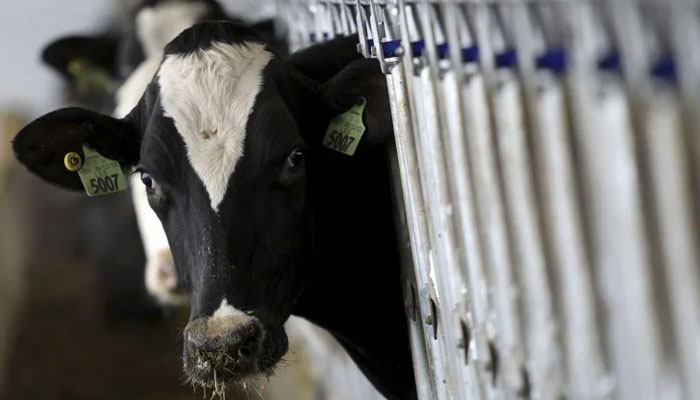CCP fines dairy associations for collusive practices
KARACHI: The Competition Commission of Pakistan (CCP) has penalised three dairy associations in Karachi for engaging in collusive practices that manipulated fresh milk prices, violating Section 4(1) and 4(2)(a) of the Competition Act, 2010.
The investigation was launched after media reports highlighted a steep surge in milk prices in Karachi. The enquiry revealed that the three associations, operating at different stages of the fresh milk supply chain, played a direct role in the price hike across Karachi and its adjoining areas.
The CCP’s findings revealed that these associations influenced key pricing mechanisms, including ‘bandhi’ rates’, ‘mandi’ rates, wholesale prices, and retail rates. The associations used coercive tactics, such as threatening milk supply suspensions, to enforce compliance with their pricing directives among wholesalers and retailers.
The evidence, including video recordings, demonstrated that price increases announced by the associations were effectively implemented across the supply chain. The order highlighted that the groups created artificial milk shortages by hoarding supplies in ice factories and later selling them at inflated rates in Sindh’s rural parts. These practices not only disrupted the supply chain but also imposed a significant financial burden on consumers.
The commission has imposed a Rs1 million fine on the Dairy and Cattle Farmers Association (DCFA) and Rs500,000 each on Dairy Farmer Association Karachi (DFAK) and Karachi Dairy Farmers Association (KDFA).
During the proceedings, the associations argued that the price caps set by the commissioner of Karachi under the Sindh Essential Commodities Price Control and Prevention of Profiteering and Hoarding Act, 2005, had not been revised for three years despite inflationary pressures. However, the CCP concluded that the associations’ practices went beyond addressing economic challenges, amounting instead to anti-competitive behaviour aimed at manipulating the market.
-
 South Korea: Two Killed As Military Helicopter Crashes During Training
South Korea: Two Killed As Military Helicopter Crashes During Training -
 Elon Musk Unveils SpaceX’s Moon-first Strategy With ‘self Growing Lunar City’
Elon Musk Unveils SpaceX’s Moon-first Strategy With ‘self Growing Lunar City’ -
 Donald Trump Slams Bad Bunny's Super Bowl Performance: 'Absolutely Terrible'
Donald Trump Slams Bad Bunny's Super Bowl Performance: 'Absolutely Terrible' -
 Jake Paul Criticizes Bad Bunny's Super Bowl LX Halftime Show: 'Fake American'
Jake Paul Criticizes Bad Bunny's Super Bowl LX Halftime Show: 'Fake American' -
 Prince William Wants Uncle Andrew In Front Of Police: What To Expect Of Future King
Prince William Wants Uncle Andrew In Front Of Police: What To Expect Of Future King -
 Antioxidants Found To Be Protective Agents Against Cognitive Decline
Antioxidants Found To Be Protective Agents Against Cognitive Decline -
 Hong Kong Court Sentences Media Tycoon Jimmy Lai To 20-years: Full List Of Charges Explained
Hong Kong Court Sentences Media Tycoon Jimmy Lai To 20-years: Full List Of Charges Explained -
 Coffee Reduces Cancer Risk, Research Suggests
Coffee Reduces Cancer Risk, Research Suggests -
 Katie Price Defends Marriage To Lee Andrews After Receiving Multiple Warnings
Katie Price Defends Marriage To Lee Andrews After Receiving Multiple Warnings -
 Seahawks Super Bowl Victory Parade 2026: Schedule, Route & Seattle Celebration Plans
Seahawks Super Bowl Victory Parade 2026: Schedule, Route & Seattle Celebration Plans -
 Keto Diet Emerges As Key To Alzheimer's Cure
Keto Diet Emerges As Key To Alzheimer's Cure -
 Chris Brown Reacts To Bad Bunny's Super Bowl LX Halftime Performance
Chris Brown Reacts To Bad Bunny's Super Bowl LX Halftime Performance -
 Trump Passes Verdict On Bad Bunny’s Super Bowl Halftime Show
Trump Passes Verdict On Bad Bunny’s Super Bowl Halftime Show -
 Super Bowl 2026 Live: Seahawks Defeat Patriots 29-13 To Win Super Bowl LX
Super Bowl 2026 Live: Seahawks Defeat Patriots 29-13 To Win Super Bowl LX -
 Kim Kardashian And Lewis Hamilton Make First Public Appearance As A Couple At Super Bowl 2026
Kim Kardashian And Lewis Hamilton Make First Public Appearance As A Couple At Super Bowl 2026 -
 Romeo And Cruz Beckham Subtly Roast Brooklyn With New Family Tattoos
Romeo And Cruz Beckham Subtly Roast Brooklyn With New Family Tattoos




